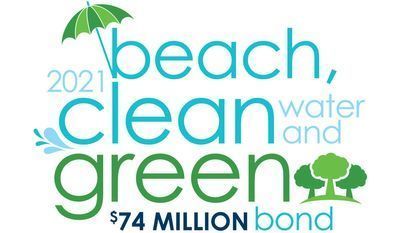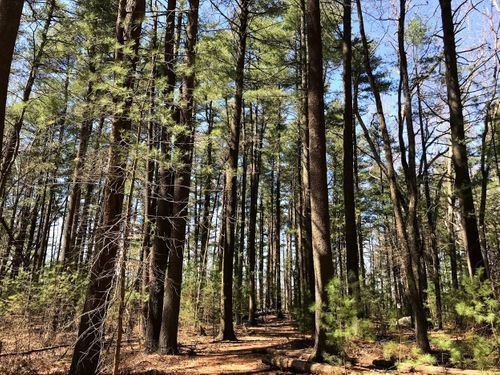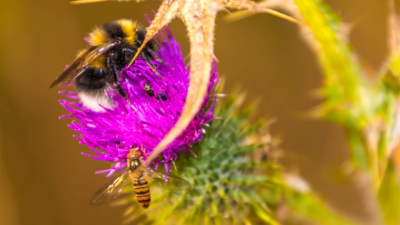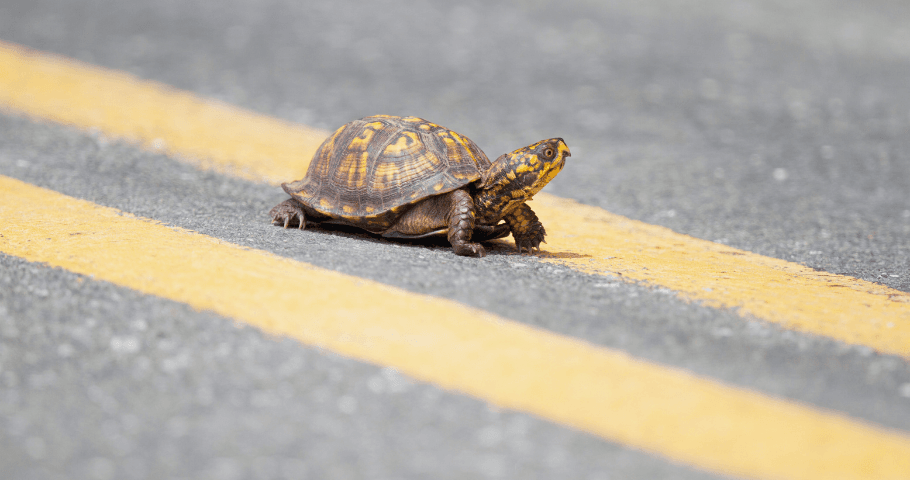
March 2021
The monthly Audubon Eagle Eye Advocacy Updates will provide you with simple actions you can take to help foster a cleaner, healthier planet along with local and national environmental news. Advocacy to protect birds and wildlife is a top Audubon priority and this work goes beyond testifying on their behalf on Smith Hill. Year round, we are working with our community partners and Rhode Island leaders to ensure the environment is a priority. These updates will keep you informed and ready to take action when the legislative session is upon us. As the newsletter continues, we are very interested in your suggestions and questions. Please send them to Audubon Senior Director of Policy Meg Kerr at mkerr@asri.org.
Sign up to get the Audubon Eagle Eye Advocacy Update in your inbox!
March 14: National Learn About Butterflies Day
If you're busy planning your garden for spring, keep butterflies in mind!
Did you know:
- There are more than 20,000 types of butterflies worldwide.
- Their wingspans can range from 1/2 inch to 11 inches.
- Butterflies in their adult stage can live from a week to nearly a year, depending on the species.
- Many butterflies migrate over long distances. A particularly famous annual migration is that of the monarch butterfly. They can travel a distance of 2,500 to 3,000 miles, from Mexico to the Northern United States and Southern Canada.
Learn more about protecting pollinators on our website!
Celebrate Success!

Rhode Islanders passed the $74 million Beach, Clean Water and Green Bond on March 2. Thank you to everyone who voted in support of this important funding for clean water and outdoor spaces. The referendum received 77.8% approval statewide, which is especially exciting for a special election during the pandemic.
The Beach, Clean Water and Green Bond includes the following programs:
• $33 million for upgrades to state beaches, parks and campgrounds
• $4 million for a park on former Interstate-195 land
• $4 million for local recreation projects
• $3 million for natural and working lands
• $15 million would go to clean water and drinking water
• $7 million for municipal resiliency projects to address climate change
• $6 million for Providence River dredging
• $2 million for the Woonasquatucket River Greenway.
These programs all contribute to keeping Rhode Island the beautiful place we all enjoy!
We have a new Secretary of Commerce and Governor!
On March 2, Governor Raimondo was confirmed in the U.S. Senate as President Joe Biden’s secretary of commerce with a vote of 84-14. As commerce secretary, she will be responsible for national economic development policies. The commerce department includes agencies focused on ocean management including the National Oceanic and Atmospheric Administration (NOAA), the National Weather Service, and the National Marine Fisheries Service. All of these agencies have a big impact on environmental protection in Rhode Island.
Governor McKee was sworn in the same day, becoming Rhode Island’s 76th governor. Audubon and our allies in the environmental community look forward to working closely with the Governor and his staff in the months ahead.
Northeast Canyons and Seamounts Marine National Monument
On January 20, 2021 President issued an “Executive Order on Protecting Public Health and the Environment and Restoring Science to Tackle the Climate Crisis.” It calls for a review of the Trump administration’s Proclamation 10049 of June 5, 2020 to open the National Monument to commercial fishing. The order directs the Department of Interior, in consultation with the Department of Commerce, the Council on Environmental Quality and several other agencies, to conduct a review of the “boundaries and conditions” that Trump established in his order.
Scientists from the New England Aquarium recently conducted a survey of marine mammal activity in the Canyons and Seamounts Monument. Similar to previous surveys, the scientists sighted almost 700 animals, including sperm whales, True’s beaked whales, and pilot whales, and huge pods of striped, bottlenose and common dolphins.
We will be participating in a listening session with the Department of Interior this month to encourage full restoration of the Marine Monument.
At the Rhode Island State House
The Rhode Island legislature is now back at work, and we are all adjusting to working remotely.
This bill is Audubon’s top priority for the 2021 legislative session. Act On Climate 2021 makes critical adjustments to the Resilient RI Act to increase Rhode Island’s efficiency and effectiveness in responding to the climate crisis. It updates the climate targets, making them consistent with current science, requiring net zero emissions by 2050. It creates accountability and transparency by requiring the development of an online public dashboard to track emissions reductions and energy consumption. The bill makes the state’s reductions binding and provides a mechanism for enforcement. And it requires the state to plan for an equitable transition for environmental justice populations.
The Senate bill was heard on February 3 in the Senate Committee on Environment & Agriculture and was voted out of committee on March 3.
- Assess and recommend new funding sources to conserve forest land across the forest continuum of rural to urban landscapes;
- Identify incentives to encourage forest landowners to maintain and manage their land and preserve forest values;
- Encourage forest conservation as a means to sequester carbon and mitigate climate change and maintain the numerous other benefits provided by forests;
- Help to increase and create new markets for Rhode Island forest products to store carbon long-term and create new jobs;
- Assess impediments to the expansion of the Rhode Island forest products industry and recommend changes to remove impediments;
- Assess means to encourage the improvement and expansion of urban and community forestry;
- Coordinate and seek input from key stakeholders to identify other science-based initiatives to promote the conservation of Rhode Island forestland
Regulating Neonicotinoid Pesticides
House: H5641 - Representatives Kislak, Bennett, Kazarian, Speakman, Cortvriend, Carson, and Donovan






















